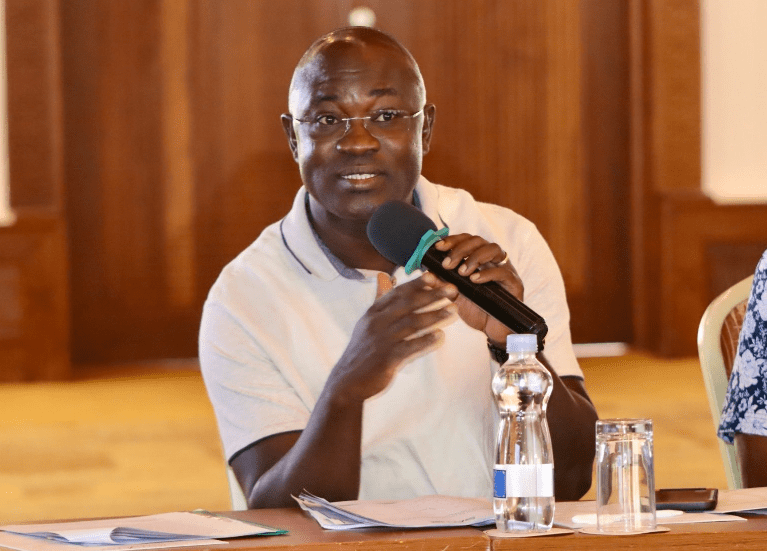Why people ignore red flags

A signal goes off that something is not right in your relationship, intuitively telling you to pause or steer clear. But you don’t want to burst your romance bubble and opt to look at your partner through rose-coloured glasses. Why?
Kenyans often make jokes that they will see red flags in relationships and proceed to run past them or collect them as souvenirs. But Kenyans are not alone in this blinding pursuit of relationship bliss at the expense of personal values.
According to Jackline Gathu, a leading psychologist in Nairobi, every relationship has some green and red flags.
Red flags are indicators that something is not right and needs to be questioned and should give the participants cause to pause the relationship as it might be dysfunctional, while green flags are signs that the relationship is healthy and headed in the right direction.
Examples of red flags include, emotional and physical abuse, controlling and manipulative behaviour, lack of trust, lack of or inconsistent communication, people unable to end past relationships in a healthy way, unhealthy comparisons with exes and unhealthy coping mechanisms among others.
Both red and green flags are normally there for the partners to see, yet some people are willfully blind to them in the moment and only acknowledge them in a post-relationship-analysis. Why is this?
Love hormones effect
“The need to be loved, seen and affirmed is innate in all humans. So when dating, people tend to be blinded by love hormones like dopamine and oxytocin and choose to overlook any signs that this might not be the right match.
It is important to remember that dating by definition is the explorative phase of the relationship where people self-reveal. This means that everyone is showing their best foot forward.
Character, however, cannot be hidden for long and some of what we call red flags may be seen even in the dating phase.
When one of the partners chooses to ignore these flags and hope they can love their partner whole, they are showing their partner that they are okay with these behaviours.
Asking their partners to change these behaviours later on, like in marriage will not work as you have showed them that you are okay with them even if they do not change. There is no incentive to change,” Jackline explains.
People, therefore, ignore red flags as they are afraid to confront the truth as this may lead to conflict and they may end up alone, which they are not ready for.
Others stay because they are in denial of the present circumstances and are not in touch with reality.
They often put their partner on a pedestal and stay with them, in love with the beautiful potential they can see rather than the ugly reality they live in.
At times, a good past further tints the ugly present circumstances with a lovely hue of hope as they believe that this person could still change.
Jackline shares that living in a fantasy world stems from codependency, where the partner unwilling to face the truth wants the other partner to be a version of what they think they need rather than what they actually are.
This is unhealthy to both parties as no one should be burdened with completing another person or being in charge of another person’s happiness.
Ken Munyua, a relationship therapist and counsellor wholly agrees with Jackie. “People run past red flags because they are in denial.
Even when they ask questions and are given answers that are patently false, they are unwilling to interrogate the falsehoods as they are not ready to face the truth and the consequences this may bring.
It often happens with people with low self-esteem. This may be because of childhood experiences, or emotional manipulation from the partner who might have successfully gaslighted them into thinking that they are not worthy of love.
It is, therefore, important to leave a relationship early once you notice red flags as you are not too emotionally invested then.
That is why dating is there. You are supposed to evaluate new partners and demote and promote accordingly,” Ken shares.
Way forward
As to how someone who feels worthless can successfully demote a partner with multiple red flags, Jackline suggests that the first step is to take a self-seeking journey where someone rediscovers who they are and the value they have in and of themselves.
They have to relearn that they are more than the relationship and are worth much more than the intermittent happiness and emotional turmoil that ignoring red flags brings.
She also encourages people to be on the lookout for green flags in relationships and to be able to tell the difference between someone with red flags and not worth keeping, and an imperfect human willing to work on themselves.
“When we say that you should not carry on a relationship once you notice a red flag is not to say that you should look for the perfect person.
No one is perfect, especially since perfect means different things depending on where and what experiences shaped you.
The idea is to look for someone willing on working on themselves and willing to create space for a mutually beneficial and functional relationship. Look for the green flags too,” Jackline says in ending.








